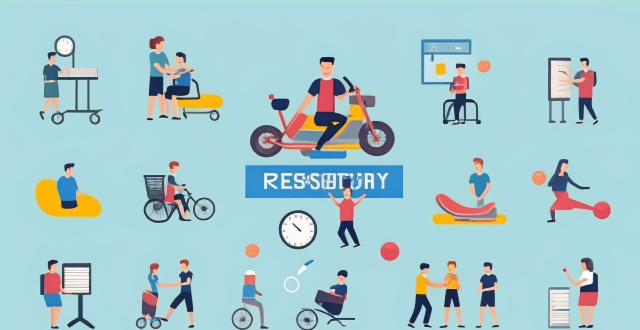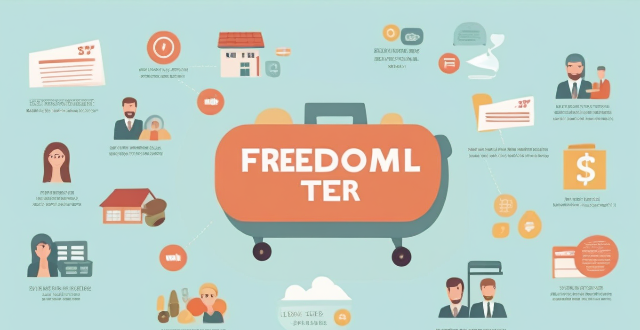Money Spending

What are the best practices for teaching children about money management and savings ?
Teaching children about money management and savings is an essential life skill that can help them develop good financial habits. Here are some best practices for teaching children about money management: 1. Start early: Even toddlers can understand basic concepts like saving and spending. Use everyday opportunities to talk about money and its value. 2. Lead by example: Children learn by example, so it's important to model good financial habits yourself. Show them how you budget, save, and make decisions about spending. 3. Use allowances wisely: Giving your child an allowance is a great way to teach them about money management. Encourage saving, teach spending, and introduce giving as part of their allowance. 4. Play money games: Board games and online games can be fun and educational at the same time. Some popular ones include Monopoly, The Game of Life, and PiggyBot. 5. Involve them in family finances: Involving your children in family finances can help them understand the real-world implications of money management. Have them help you create a budget, go grocery shopping with you, and talk to them about bills and expenses. Remember to be patient, consistent, and positive when teaching children about money management and savings. With these best practices, your child will develop good financial habits that will serve them well throughout their life.

What are some common mistakes people make when trying to save money ?
Saving money is a crucial aspect of financial planning, but it's not always easy. Many people struggle with saving money and often make some common mistakes that can hinder their progress. Here are some of the most frequent errors people commit when trying to save money: Not having a clear savings goal, underestimating expenses or overestimating income, impulse buying, not taking advantage of discounts and deals, not automating savings, spending on depreciating assets, not reviewing banking and service providers, and ignoring the power of compound interest. By avoiding these common pitfalls, individuals can make substantial progress in their savings journey and achieve their financial goals more efficiently.

How do I teach my children about saving money ?
Teaching children about saving money is a vital life skill that can benefit them throughout their lives. Here are some effective strategies to help your kids learn the value of saving: 1. Start early by introducing the concept of money and using visual aids like charts or piggy banks. 2. Set an example by demonstrating responsible financial behavior and sharing your own experiences with saving. 3. Make it fun by creating games that teach children about earning and saving money, and offering small rewards for reaching savings goals. 4. Encourage earning by encouraging part-time jobs or chores around the house, and teaching them about allowances. 5. Set goals together by establishing specific savings goals and tracking progress towards these goals. 6. Teach them about budgeting by explaining its importance and practicing budgeting together. 7. Introduce them to banking by opening a savings account for your child and explaining how interest works. 8. Discuss long-term goals like college tuition or car payments, and encourage long-term saving. 9. Teach them about credit by explaining what credit cards are and how they work, including the dangers of overspending. 10. Foster independence by encouraging financial independence and providing support as needed.

What are some tips for saving money while shopping ?
Saving Money While Shopping: Tips for Smarter Spending Shopping can be both enjoyable and costly. To save money while shopping, consider these tips: make a list before shopping, compare prices across different stores and online retailers, use coupons and discounts, buy in bulk (if applicable), avoid impulse purchases, and shop around holidays for sales. By following these strategies, you can stick to your budget, avoid overspending, and get the best deals possible.

What are some ways to save money on food while traveling ?
Here are ten ways to save money on food while traveling: 1. Eat local street food for affordable and delicious options. 2. Cook your own meals if you have access to a kitchen or cooking facilities. 3. Pack snacks from home to avoid expensive airport or convenience store prices. 4. Avoid tourist traps and look for places where locals eat for authentic and affordable cuisine. 5. Use discount apps and coupons to save money on food and drink at local establishments. 6. Share meals with friends or family members to enjoy a variety of dishes without spending too much money. 7. Drink tap water instead of buying bottled water to save money. 8. Take advantage of hotel breakfasts to save money on breakfast costs. 9. Visit local markets for fresh produce, meats, and other ingredients that are cheaper than grocery stores or restaurants. 10. Choose budget-friendly restaurants that cater to locals rather than tourists for good food at reasonable prices.

How do economic recessions and downturns affect consumer spending on sports-related activities and products ?
Economic recessions significantly impact consumer spending on sports-related activities and products, affecting various aspects of the industry. Reduced disposable income leads to budget cuts and prioritization of basic needs over leisure activities. Changes in consumer behavior include seeking value-oriented options and DIY approaches to sports participation. Decreased ticket sales, cancellations/rescheduling of events, reduced sales of sports goods, and bargain hunting are common during economic downturns. Gym memberships may be canceled in favor of free or lower-cost alternatives, and investment in fitness technology could suffer. Fewer trips for sports tourism and a rise in localized activities are also likely. Sponsorships and advertising revenue may decrease, leading to job losses and wage stagnation across the sports industry. Long-term effects include recovery time and shifting habits formed during recessions. As economies recover, the sports industry must adapt to these changes and find innovative ways to attract consumers back to their venues.

What are some effective saving techniques for beginners ?
Saving money is a crucial skill that everyone should learn, especially beginners. Here are some effective saving techniques for beginners: setting clear goals, creating a budget, automating savings, cutting unnecessary expenses, and increasing income. By following these steps, you can start saving money and achieving your financial goals.

How can I avoid impulse buying and stick to my budget ?
Impulse buying is a common problem for many people, but there are strategies you can use to avoid it and stick to your budget. Creating a budget, setting financial goals, using cash instead of credit cards, avoiding temptation, and practicing mindful spending are all effective ways to control your spending and achieve your financial objectives. By implementing these strategies, you can take control of your finances and make progress towards your long-term goals.

How can I save money on my summer vacation ?
This article provides tips on how to save money while still enjoying your summer vacation. It suggests planning ahead, cutting back on expenses before your trip, and being mindful of spending during your trip. Planning ahead can help you find the best deals on transportation, accommodations, and activities. Cutting back on expenses before your trip can give you more money to spend on your vacation without sacrificing your savings goals. Being mindful of your spending during your trip means setting a daily budget and choosing affordable dining options. By following these tips, you can enjoy an affordable and memorable summer vacation without breaking the bank.

What tips can help me save money while shopping for groceries ?
Saving money while shopping for groceries requires planning, discipline, and creativity. Making a shopping list, using coupons and discounts, buying in bulk, shopping seasonally, and cooking at home are some of the tips and tricks that can help you save money on groceries. By following these tips, you can significantly reduce your grocery bill without sacrificing quality or variety.

How do I make restaurant-quality meals at home without spending too much ?
To make restaurant-quality meals at home without spending too much, start by planning your meals and shopping smart. Prep ingredients in advance and master basic cooking techniques. Invest in good kitchen tools and create the right ambiance to enhance the dining experience. Remember that practice makes perfect, so keep trying new recipes and learning from mistakes. By following these steps, you can enjoy delicious, affordable meals at home.

How can I avoid overspending during the discount season ?
During the discount season, it's important to avoid overspending. Here are some tips: set a budget, make a list of desired items, research prices, use cash or debit cards, avoid impulse buys, and shop online for better deals. By following these steps, you can enjoy discounts without overspending.

How do I avoid high fees when exchanging money ?
Exchanging money can be costly, but there are ways to avoid high fees. Use your bank or credit card for transactions, consider a prepaid travel card, look for no-fee ATMs, use online currency exchange services, and negotiate with local currency exchange offices. By being aware of your options and doing research ahead of time, you can save money and make your travels more enjoyable.

How can one save money while shopping globally ?
Shopping globally can be an exciting experience, but it can also be costly. Here are some tips on how to save money while shopping internationally: 1. Research the best deals by comparing prices, checking for discounts and coupons, and signing up for newsletters from favorite retailers. 2. Consider shipping costs by looking for retailers that offer free or flat rate shipping and group shipping with friends or family members who live in the same country. 3. Use currency exchange services to compare rates and avoid airport exchange desks, and consider prepaid cards to load money onto a card in your home currency and use it abroad without incurring additional fees. 4. Be aware of taxes and duties by understanding tax regulations of the country you are shopping in, checking for tax-free options for tourists, and calculating duty fees before making a purchase. 5. Shop locally when possible by supporting small businesses, looking for handmade items, and bargaining with street vendors in countries where it is common practice.

Can I use Apple Pay to send money to friends or family ?
The article provides a summary of how to use Apple Pay to send money to friends or family through the Apple Cash feature. It outlines the steps to set up Apple Cash, send money using Apple Pay, and receive money through Apple Pay. Additionally, it mentions other ways to use Apple Pay for transactions such as making purchases, paying for services, splitting bills, and donating to charities.

How can we save money on food during a family vacation ?
Saving money on food during a family vacation is crucial for budgeting. To achieve this, one should plan ahead by researching local restaurants and checking online reviews. Cooking your own meals in a vacation rental with a kitchen or bringing a portable stove can significantly reduce expenses. Packing healthy snacks like fruits and nuts can prevent expensive snack purchases at tourist attractions. Utilizing hotel amenities such as free breakfasts or dinners can also save money. Sharing meals by ordering larger portions and splitting them among family members is another effective strategy. Lastly, using discounts and coupons for local restaurants can further cut costs. By following these tips, one can enjoy delicious meals without overspending.

How can I save money on a last-minute weekend city break ?
To save money on a last-minute weekend city break, consider the following strategies: 1. **Research and Compare Prices**: Use online travel aggregators to find deals, set up price alerts for your destination, and look for discount codes and coupons. 2. **Be Flexible with Your Dates and Destination**: Travel during off-peak times and choose affordable destinations or nearby locations to reduce costs. 3. **Book Cheap Accommodations**: Stay in budget lodging options like hostels or use home-sharing platforms. Take advantage of hotel loyalty programs and partner promotions. 4. **Minimize Transportation Costs**: Use public transit or walking tours instead of taxis or rental cars. Avoid expensive airport transportation by taking public transit or using carpooling services. 5. **Find Free or Cheap Activities**: Explore free attractions like museums and parks, attend local events, purchase city passes for discounted attraction entry, and look for group discounts on tours and activities.

How can I make sure I'm getting the best value for my money when shopping ?
When it comes to shopping, ensuring you're getting the best value for your money is crucial. Here are some tips to help you make informed decisions and get the most out of your purchases: 1. Research Before You Buy: Read reviews, compare prices, and check for sales and discounts. 2. Set a Budget: Determine your needs, prioritize items, and allocate funds accordingly. 3. Choose Quality Over Quantity: Invest in durable items and consider warranties and guarantees. 4. Take Advantage of Loyalty Programs: Join reward programs and use credit card rewards wisely. 5. Don't Forget About Return Policies: Understand store policies and keep receipts organized. By following these tips, you can ensure that you're getting the best value for your money when shopping. Remember to take your time, do your research, and make well-informed decisions to get the most out of your purchases.

How can I make the most of leftover ingredients to save time and money in the kitchen ?
How Can I Make the Most of Leftover Ingredients to Save Time and Money in the Kitchen? Saving time and money in the kitchen is a common goal for many home cooks. One effective way to achieve this is by making the most of leftover ingredients. Here are some tips on how to do so: - Plan ahead by making a meal plan and shopping smart to avoid wastage. - Store leftovers properly in the refrigerator or freezer using airtight containers. - Get creative with leftovers by transforming them into new dishes, combining them, adding them to soups and stews, or trying new recipes. - Don't be afraid to experiment with different flavors and combinations. - Share leftovers with family and friends or donate them to food banks or other charitable organizations.

What are some effective ways to save money while shopping ?
Shopping can be enjoyable but also strain budgets. Effective ways to save money include making a shopping list, using coupons and promo codes, buying in bulk for non-perishable items, taking advantage of seasonal sales, comparing prices, and avoiding impulse buys. Planning ahead and setting a budget can help stick to necessary purchases and avoid overspending.

How can I save money while dining out with friends ?
Dining out with friends is a great way to socialize and enjoy good food. However, it can also be an expensive habit. Here are some tips on how to save money while still enjoying meals with your friends: 1. Choose Affordable Restaurants 2. Share Dishes 3. Drink Wisely 4. Take Advantage of Deals and Promotions 5. Be Mindful of Portion Sizes

What strategies can I use to save money while shopping online regularly ?
Strategies to Save Money While Shopping Online Regularly includes using coupon codes and promos, taking advantage of cash-back services, price comparison, buying during sales and holidays, considering subscription services, looking for free shipping offers, avoiding impulse buying, checking return policies and warranties, reviewing purchase history, and maximizing credit card benefits.

What are some tips for saving money on tourist attractions and activities ?
When planning a trip, it's essential to consider the cost of tourist attractions and activities. Here are some tips for saving money while still enjoying your vacation: Look for discounts and special offers on the attraction's website or sign up for their newsletters; consider multi-attraction passes if visiting multiple attractions in a city or region; visit during off-peak times such as weekdays or early morning/late afternoon hours; use public transportation instead of taxis or renting a car; bring your own food and drinks from home; research free attractions and activities in the area.

How do I educate my teenager about budgeting and money management ?
Teaching your teenager about budgeting and money management is crucial for their financial independence and future success. Start with basic concepts, provide an allowance to practice, set financial goals together, introduce banking and investment principles, use technology, lead by example, encourage part-time work, discuss credit and debt, and plan for the future. This continuous process requires patience, consistency, and practical examples to set your teen on a path to financial stability.

How much money do I need to achieve financial freedom ?
Financial freedom is a subjective term that varies from person to person. It generally means having enough income-producing assets to cover your expenses without relying on a job. The amount of money needed to achieve financial freedom depends on several factors, including lifestyle, location, and future goals. To determine your financial freedom number, consider factors such as lifestyle expenses, future goals, emergency funds, and retirement planning. Strategies to achieve financial freedom include building passive income streams, investing wisely, living below your means, and creating a plan and sticking to it. By following these strategies, you can reach your financial goals faster and achieve financial freedom over time.

How does tax planning affect a country's economy ?
Tax planning is a crucial component of any country's fiscal policy, as it affects various aspects of the economy, including government spending, investment decisions, and consumer behavior. Increased tax revenue can lead to higher government spending in critical sectors like healthcare and education, which can improve living standards and stimulate economic growth. Tax incentives can encourage businesses to invest in areas aligned with economic objectives, leading to job creation and technological advancements. Additionally, tax planning can influence consumer behavior by affecting prices, discouraging consumption of certain products, and promoting responsible spending habits. Overall, effective tax planning is essential for fostering economic growth, enhancing living standards, and promoting sustainable development.